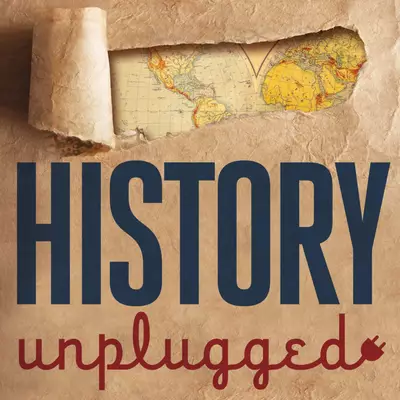Listen on Your Favorite App
Abraham Lincoln Survived and Thrived in the Anarchy of Antebellum America
January 28, 2021
00:00
43:43
Listen on Your Favorite App
“Some 16,000 books have been written about Abraham Lincoln,” Gordon Wood writes in The Wall Street Journal, “more than any other historical figure except Jesus.” So why should you read one more? Because “there has never been one like this one.” In Abe: Abraham Lincoln in His Times, David S. Reynolds has written “a marvelous cultural biography that captures Lincoln in all his historical fullness”:
Abraham Lincoln grew up in absolutely wild times. It was divisive, partisan, and violent. Government in antebellum America was weak and unstructured. The economy was in chaos. Gordon Wood notes thousands of different kinds of paper-money notes flew about, and risk-taking and bankruptcies were everywhere; even some states went bankrupt. There were duels, rioting and mobbing. Americans drank more per capita than nearly all other nations, which provoked temperance movements. Fistfights, knifings and violence were ordinary affairs, taking place even in state legislatures and the Congress.
But Abraham Lincoln survived and thrive in this environment. David Reynolds, today's guest and author of "Abraham Lincoln in his Times, said that far from distancing himself from the wild world of antebellum America, Lincoln was thoroughly immersed in it. After he assumed the presidency, he was able to redefine democracy for his fellow Americans ‘precisely because he had experienced culture in all its dimensions—from high to low, sacred to profane, conservative to radical, sentimental to subversive.’
“Much of Lincoln’s greatness, writes Mr. Reynolds, came from his ability to tap into this culture. He was able to respond thoughtfully to the teeming chaos of antebellum America. Lincoln was less a self-made man than an America-made man. He told his law partner, William Herndon, ‘Conditions make the man and not man the conditions.’ But, according to Herndon, Lincoln also ‘believed firmly in the power of human effort to modify the environments which surround us.’ Indeed, his capacity to shape the world around him was crucial to his life and to the life of the nation.”
Abraham Lincoln grew up in absolutely wild times. It was divisive, partisan, and violent. Government in antebellum America was weak and unstructured. The economy was in chaos. Gordon Wood notes thousands of different kinds of paper-money notes flew about, and risk-taking and bankruptcies were everywhere; even some states went bankrupt. There were duels, rioting and mobbing. Americans drank more per capita than nearly all other nations, which provoked temperance movements. Fistfights, knifings and violence were ordinary affairs, taking place even in state legislatures and the Congress.
But Abraham Lincoln survived and thrive in this environment. David Reynolds, today's guest and author of "Abraham Lincoln in his Times, said that far from distancing himself from the wild world of antebellum America, Lincoln was thoroughly immersed in it. After he assumed the presidency, he was able to redefine democracy for his fellow Americans ‘precisely because he had experienced culture in all its dimensions—from high to low, sacred to profane, conservative to radical, sentimental to subversive.’
“Much of Lincoln’s greatness, writes Mr. Reynolds, came from his ability to tap into this culture. He was able to respond thoughtfully to the teeming chaos of antebellum America. Lincoln was less a self-made man than an America-made man. He told his law partner, William Herndon, ‘Conditions make the man and not man the conditions.’ But, according to Herndon, Lincoln also ‘believed firmly in the power of human effort to modify the environments which surround us.’ Indeed, his capacity to shape the world around him was crucial to his life and to the life of the nation.”
See omnystudio.com/listener for privacy information.
More Episodes
See all episodes
Meet Your Host

Scott Rank is the host of the History Unplugged Podcast and a PhD in history who specialized in the Ottoman Empire and modern Turkey. Before going down the academic route he worked as a journalist in Istanbul. He has written 12 history books on topics ranging from lost Bronze Age civilizations to the Age of Discovery. Some of his books include The Age of Illumination: Science, Technology, and Reason in the Middle Ages and History’s 9 Most Insane Rulers.. Learn more about him by going to scottrankphd.com.
